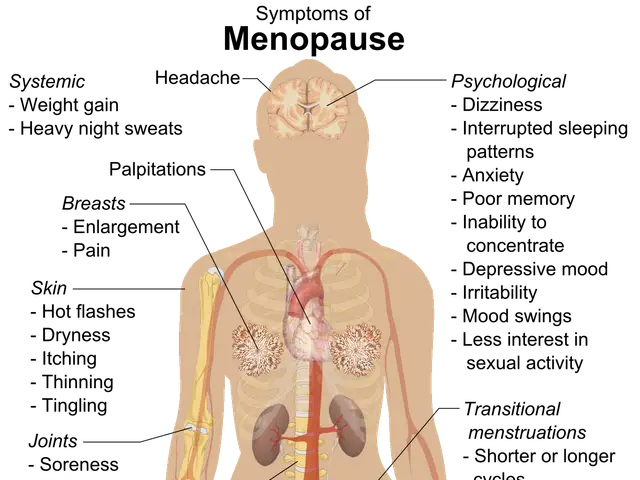Microbial Ecosystem in the Gastrointestinal Tract: Understanding, Significance, and Medical Application
The human body is home to a vast and intricate ecosystem, one that is often overlooked – the gut microbiota. This article delves into the fascinating world of this microscopic community residing in our digestive tract, highlighting its crucial role in maintaining health and preventing disease.
Comprising approximately 100 trillion microbial cells, the human gut microbiota is a veritable metropolis teeming with life. This teeming city is made up of diverse inhabitants, including bacteria, viruses, fungi, and other microorganisms, totalling over 1,000 different species [1][2].
The gut microbiota plays a pivotal role in resisting intestinal overgrowth of externally introduced populations that cause disease. It aids in various bodily functions such as harvesting energy from digested food, protecting against pathogens, regulating immune function, and strengthening biochemical barriers of the gut and intestine [3]. Gut microbes are also essential for helping humans absorb nutrients and break down complex molecules in meats and vegetables. Moreover, they influence food cravings and feelings of being full [4].
However, it's not just about who's there; it's also about what they can do. This is where the concept of the gut microbiome comes into play. The gut microbiome encompasses not only the microorganisms themselves but also their genetic material and metabolic functions. It provides insights into the genes and biochemical activities of these microbes, answering questions about their capabilities and actions [3][4].
The status of the gut microbiota is linked to several health conditions, including metabolic syndrome, inflammatory bowel diseases (IBD) such as Crohn's disease and ulcerative colitis, obesity, and type 2 diabetes [5][6]. Research suggests that disturbances to early microbial exposures can hamper the development of the microbiota, leading to an imbalance in the microbiome that can contribute to these health issues [7].
Changes in microbiota composition can also affect these functions, as demonstrated by the impact of disturbing the microbiota with antibiotics, which can lead to disease, including antibiotic-resistant infections [8]. Moreover, the gut-brain axis – the constant communication between a person's gut microbiota and brain – has been implicated in mental health conditions such as depression and anxiety [9].
The National Institutes of Health's Human Microbiome Project has been instrumental in establishing links between specific microbial compositions and diseases across demographics [10]. This project has led to a significant increase in research funding, with huge investments going into understanding microbial populations in the body and their genetics.
In conclusion, the human gut microbiota and microbiome are complex and essential components of human health. Understanding their role is crucial in developing strategies for preventing and treating a wide range of diseases. While we are still in the early stages of this research, the potential for discoveries that could revolutionise medicine is immense.
- The human gut microbiota, a metropolis of over 1,000 different species, resides in our digestive tract and plays a vital role in maintaining health and preventing disease.
- Gut microbes aid in various functions such as harvesting energy from digested food, protecting against pathogens, regulating immune function, and strengthening biochemical barriers of the gut and intestine.
- The gut microbiome, which includes the microorganisms themselves, their genetic material, and metabolic functions, offers insights into the capabilities and actions of these microbes.
- Disturbances to the microbiota's development can lead to health issues like metabolic syndrome, inflammatory bowel diseases, obesity, type 2 diabetes, and even mental health conditions such as depression and anxiety.
- Antibiotics can disturb the microbiota composition, leading to disease, including antibiotic-resistant infections.
- The National Institutes of Health's Human Microbiome Project has been instrumental in linking specific microbial compositions to diseases across demographics.
- Understanding the role of the human gut microbiota and microbiome is crucial for developing strategies for preventing and treating a range of diseases, with potential discoveries anticipated to revolutionize medicine.







